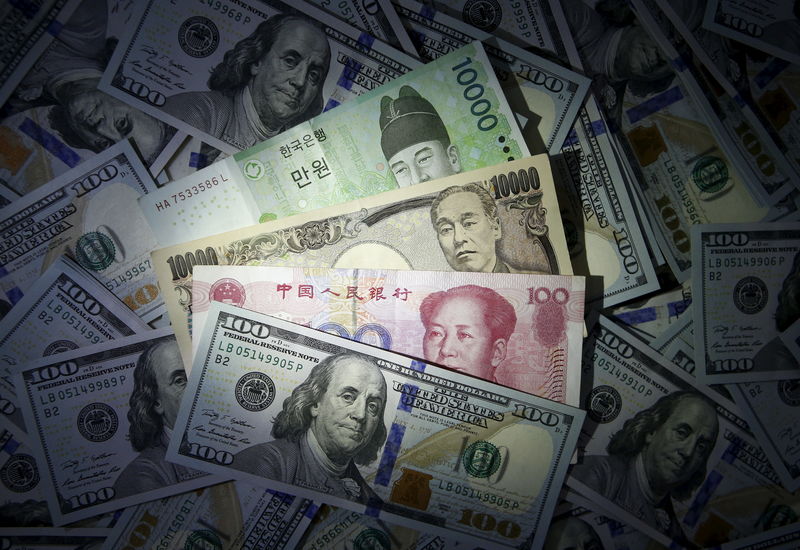JFrog stock rises as Cantor Fitzgerald maintains Overweight rating after strong Q2
Short positions on all Asian currencies reached multi-month lows, as market sentiment shifted positively, diminishing fears of an extended global trade war.
According to Reuters, analysts have adjusted their views, now showing a greater appetite for risk-sensitive assets. The bearish outlook on the Chinese yuan and Singapore dollar softened to levels not seen since October 31, 2024, and the South Korean won also saw a decline in short positions to early October levels, according to a Reuters poll involving 13 respondents.
The Thai baht, in particular, exhibited the least amount of short positions, marking it as one of the best performers in Southeast Asia with a gain of over 2% since the year’s start. Poon Panichpibool, a markets strategist at Krung Thai Bank, linked the baht’s positive movement to a recent surge in gold prices but also noted potential uncertainties stemming from the U.S. market.
Minutes from the U.S. Federal Reserve’s latest meeting indicated concerns over inflation in light of President Donald Trump’s initial policy proposals, casting doubt over the central bank’s timeline for potential interest rate cuts. The markets are currently factoring in a 45.5% probability of a 25-basis-point reduction at the Fed’s mid-July meeting, as per the CME FedWatch tool.
The dollar index, tracking the U.S. dollar against six major rivals, has decreased by 2.6% since the start of the month, suggesting that Trump’s tariff threats are viewed more as a negotiating tactic rather than a fixed goal.
Analysts have been scaling back their short bets on Asian currencies as Trump’s initial policies indicated a more cautious approach to tariffs than initially feared. "Whilst Trump tariffs still loom, it is unclear whether they would actually be enacted or remain negotiating tools," stated analysts from Maybank.
The Indian rupee, although easing, remained in bear territory following the Reserve Bank of India (NSE:BOI)’s first rate cut in nearly five years earlier in the month. The RBI also took significant steps to support the struggling currency earlier in the month. Despite these interventions, the rupee has weakened by about 1.3% since the year began, reflecting the postponed implementation of Trump’s tariff proposals.
Dilip Parmar from HDFC Securities commented on the situation, "Looking ahead, while domestic conditions have started to stabilize post-Budget and monetary policy announcements, concerns from overseas remain, contributing to ongoing volatility in the forex market. The central bank has begun intervening more aggressively in response to the surge in forex market volatility, particularly due to Trump’s tariff policies."
Other Asian currencies, including the Taiwan dollar and Philippine peso, also saw a reduction in short positions to mid-October levels. Similarly, bears lessened their stance on the Malaysian ringgit and Indonesian rupiah.
The Asian currency positioning poll, which surveys analysts and fund managers about their market positions in nine Asian emerging market currencies, revealed a general easing in short positions, indicating a more bullish outlook for these currencies in the current market climate.
This article was generated with the support of AI and reviewed by an editor. For more information see our T&C.
